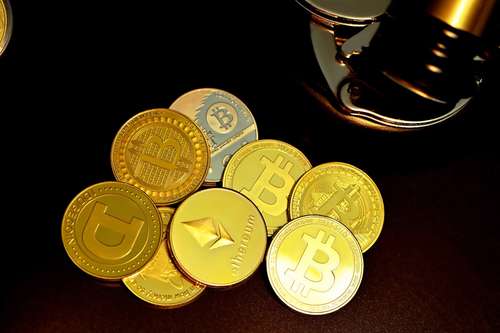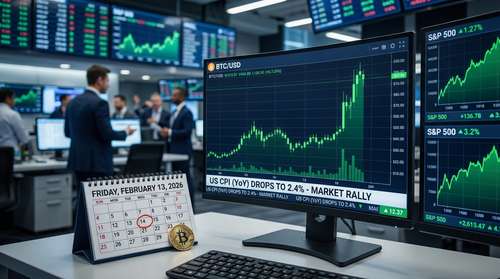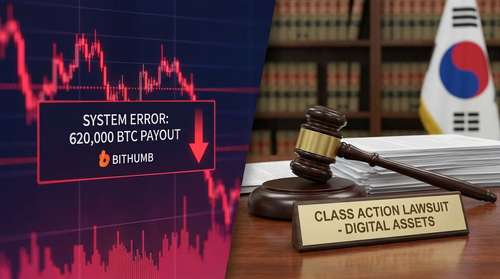This week has brought a storm of conversations and raised eyebrows across the financial sectors. The news that BlackRock CEO Larry Fink, often cited as a major backer of Bitcoin in Wall Street circles, has taken on a leadership role at the World Economic Forum is turning heads. It is not every day you see someone with deep roots in traditional finance stepping so boldly into the arena of global economic policymaking.
Wall Street veterans and crypto enthusiasts alike are watching with keen interest. How will this fusion of high finance and cutting-edge digital currency policies shape the future landscape of bitcoin and other cryptocurrencies? The answer might lie in the changes we can expect to see at one of the world’s most influential economic summits.
Wall Street's Influence on Global Economic Policy
When you consider the history of Wall Street and its influence on global markets, it is clear that leaders like Larry Fink carry more than just a deep understanding of finance. They have the power to shape market trends and influence economic policy on a grand scale.
The appointment at the World Economic Forum is significant because it exemplifies how traditional finance is becoming increasingly intertwined with the world of cryptocurrency. Fink’s role signals a broader institutional acceptance of digital currencies. It is like watching a seasoned pilot expertly navigate turbulent skies—a sign that stability and innovation can coexist.
Some might wonder, what does this mean for the future of blockchain and cryptocurrency investments? The move implies that even if you are a die-hard traditional finance supporter, you can still find ways to endorse and invest in digital currency platforms. It also suggests that the lines between old and new financial systems are blurring, making it a fascinating time for anyone interested in the evolution of economic policy.
Integrating Cryptocurrency into the Global Financial System
The World Economic Forum has long been a platform where revolutionary ideas meet traditional practices. With Fink’s appointment as interim co-chair of the World Economic Forum board, the event's potential to integrate cryptocurrency into mainstream finance has increased exponentially. This move is not just about personal ambition; it represents a seismic shift in financial markets and regulatory outlook.
In a series of discussions at previous economic summits, Fink highlighted the importance of bridging the gap between digital currencies and traditional financial institutions. His forward-thinking approach is a testament to the evolving landscape of blockchain technology and digital currency investment. He believes that by fostering collaboration between Wall Street and crypto innovators, we could see a more resilient financial system emerge, one that leverages technology to manage risk and enhance value.
The idea of merging these two worlds might seem complex, but it is becoming as natural as the merging of different cable channels on television. Companies that once stood at banks' strongholds are now dabbling in cryptocurrencies, creating partnerships that were almost unthinkable a decade ago. Fink’s role at the economic summit could be a catalyst that transforms this vision into reality.
Reactions and Reflections from the Financial Community
There have been varied reactions across financial communities to this groundbreaking appointment. Many view it as a long overdue acknowledgement of the shifting market dynamics. In essence, traditional powerhouses are finally catching up to the digital revolution that Bitcoin spearheaded. This enthusiasm is palpable among investors and analysts who see solid potential in increased cryptocurrency involvement in economic policymaking.
At the same time, skeptics voice concerns about the possible implications. They raise valid questions: Can regulatory structures adapt quickly enough to accommodate this rapid integration? Does increased influence of Wall Street create conflicts of interest in pushing forward technology-focused policies? These questions are part of an ongoing conversation that mirrors the debates we see in bustling coffee shops across the country.
Through Fink’s leadership, the World Economic Forum is expected to address these challenges head-on. His vast insight into market trends and unparalleled experience in economic policy might just be what is needed to build bridges between emerging cryptocurrencies and established financial doctrines.
A New Era of Collaboration Awaits
The appointment of Larry Fink as interim co-chair comes at a time when the global economy is in flux, and decisive leadership matters more than ever. It signifies a new era where digital currency does not stand on the fringes but is recognized as a crucial component of modern commerce. At its core, this move is about creating a sustainable and inclusive economic framework that benefits all stakeholders.
The collaborative environment at the World Economic Forum is primed to welcome diverse viewpoints. With Fink at the helm, discussions will likely focus on how to integrate blockchain technology and digital currency into financial markets seamlessly. His appointment acts like an invitation for traditional investors to explore innovative blockchain opportunities, setting the stage for a broad-based dialogue on the global economy.
This is similar to the way new ideas in technology have historically been met with a mix of excitement and caution—a familiar scene for anyone who has followed the tech industry over the years. As economic policies are reimagined, more focus will be centered on balancing the old guard with emerging trends, ensuring that neither domain is left out of the picture.
The dynamic blend of Wall Street expertise and a forward-looking digital currency approach is certain to trigger more debates, but it also paves the way for a healthy evolution of market strategies and regulatory processes. It’s an exciting time for investors, policy makers, and anyone interested in the future of the global economy.
Looking Ahead
As we peer into the immediate future, the implications of Fink’s new role are palpable. The World Economic Forum is set to become a platform for robust discussions about the integration of cryptocurrencies into mainstream finance. It feels as though we are at the edge of a new frontier, where traditional and digital finance converge to form a unified economic outlook.
This move reinforces the notion that change is not just coming—it’s already here. Leaders like Larry Fink have always known that innovation and stability are not mutually exclusive, and now his appointment is a clarion call to both realms to work together more closely.
In summary, the appointment of a high-profile Wall Street backer to a key role at an economic summit like the World Economic Forum is a milestone. It marks a potential turning point in how the world views digital currencies such as Bitcoin and how these currencies might shape global economic policy in years to come. The coming months promise exciting discussions, potential regulatory overhauls, and, hopefully, a more collaborative future for both finance and technology enthusiasts alike!




